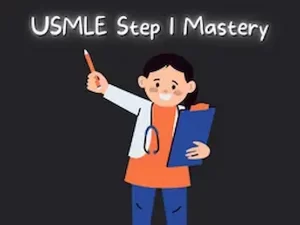Preparing for your residency interview can be a nerve-wracking experience, but knowing how to ace residency interview can make all the difference. Residency interviews are a critical part of your medical career, offering a chance to showcase your skills, personality, and enthusiasm for the program. Whether you’re applying to competitive programs or aiming for the best residency programs after USMLE, a strong performance in your interview can help you stand out. In this guide, we will walk through essential steps on how to ace residency interview, including practical tips on preparation, professionalism, and interview techniques. With the right approach, you can confidently navigate the residency interview process and make a lasting impression on the interview panel.
Research the Program
Knowing how to ace residency interview starts with research. Before the big day, it’s essential to understand the specific residency program you’re applying to. Review the program’s values, strengths, and culture to tailor your answers accordingly. Make sure to familiarize yourself with faculty members and any unique aspects of the program that could set it apart. Showing that you’ve done your homework will reflect positively on you and demonstrate your genuine interest. This knowledge will also allow you to apply the Residency interview STAR method, giving structured, relevant answers when you’re asked about your experiences or challenges.
- Key Takeaways:
- Familiarize yourself with the residency program’s history and goals.
- Use the STAR method to respond to behavioral questions effectively.
- Understand how the program aligns with your long-term career goals.
Prepare Relevant Questions
Asking insightful questions is one way to show you’ve done your homework and to express genuine interest in the program. Think about what you want to know and be sure to focus on program-specific aspects. Knowing how to ace residency interview means engaging in meaningful conversation, not just answering questions. Good questions can cover topics like mentorship, residency workload, research opportunities, and the program’s overall philosophy. Keep in mind that your questions should reflect the values and vision of the program while also aligning with your personal career goals.
Impress with Your Answers
Your answers should be structured and relevant. The Residency interview STAR method (Situation, Task, Action, Result) helps you provide complete and coherent responses to situational questions. This technique allows you to clearly articulate your experience, problem-solving skills, and what you’ve learned from past challenges. Knowing how to ace residency interview involves being clear and concise in your responses, but also reflecting on how your experiences have shaped your career goals and prepared you for this opportunity.
- Key Takeaways:
- Use the STAR method for structured, impactful answers.
- Provide specific examples of your skills and experience.
- Connect your responses to the program’s values and your goals.
Do Your Homework
Beyond researching the program, you should also prepare for common interview questions. This includes practicing your responses to behavioral and technical questions. Knowing how to ace residency interview involves anticipating what you’ll be asked and preparing thoughtful, confident answers. Review your personal statement and CV so you can discuss your experiences in a way that aligns with your motivations for pursuing a residency. By doing so, you’ll be better equipped to ace your residency interviews, presenting yourself as a strong and well-prepared candidate who is ready for the challenges ahead.
- Key Takeaways:
- Review your CV and personal statement.
- Practice answers to common residency interview questions.
- Tailor your responses to the specific residency program.
Avoid Technical Glitches or Background Errors
For virtual interviews, technical issues can cause unnecessary stress. Knowing how to ace residency interview remotely means taking proactive steps to ensure your internet connection, video, and audio are working smoothly. Set up your interview space ahead of time to avoid distractions. A clean, quiet environment will make a strong impression, as will testing your equipment before the interview begins.
Dress Professionally
Professional attire is a must. Knowing how to ace residency interview includes dressing appropriately for the occasion, as it shows you are serious and respectful of the process. Whether the interview is in person or virtual, make sure your clothing is neat, conservative, and reflects the professional environment you are entering.
Invest in Your Set Up
For virtual interviews, a good set-up is key. This includes good lighting, a quiet space, and a reliable internet connection. A professional, clean background and a distraction-free environment show you’re prepared and respectful. Knowing how to ace residency interview virtually means putting in the effort to ensure your technology and environment are up to standard. By creating the right setup, you’ll be able to ace your residency interviews and make a lasting, positive impression on your interviewers.
- Key Takeaways:
- Ensure proper lighting and background.
- Test your audio and video before the interview.
- Choose a quiet, distraction-free space.
Be On Time
Punctuality is essential when you’re learning how to ace residency interview. Whether it’s a virtual or in-person interview, being on time shows respect and preparedness. Aim to arrive early, giving yourself time to settle in and mentally prepare. For virtual interviews, test everything well before the scheduled time.
Show Enthusiasm and Genuine Interest
Expressing enthusiasm about the program and the opportunity to contribute is important. Knowing how to ace residency interview also involves demonstrating your passion for the field. Interviewers want to know that you are committed to the residency program and eager to contribute. Speak genuinely about why you’re interested in this particular program.
Smile and Relax During Your Residency Interviews
During your residency interview, it’s important to relax and be yourself. A smile can go a long way in making a positive impression. Knowing how to ace residency interview also involves showing confidence, but not arrogance. Smile, listen actively, and enjoy the conversation. When you are at ease, your interviewers will feel more at ease as well.
Cut Yourself Off
Sometimes, it’s easy to overexplain yourself during an interview. Knowing how to ace residency interview includes practicing brevity and cutting yourself off when you’ve made your point. You want to give enough information without overloading your interviewers with too much detail. A concise, clear answer is more impactful.
- Key Takeaways:
- Be concise and to the point.
- Avoid rambling or over-explaining.
- Focus on delivering clear, relevant answers.
What are the red flags for residency interviews?
These are the red flags for residency interview:
- Lack of Preparation – Failing to research the program or answer common residency questions reflects poorly on commitment.
- Negative Attitude – Speaking poorly about previous institutions, colleagues, or mentors is a major red flag.
- Overemphasis on Salary/Lifestyle – Prioritizing compensation over patient care raises concerns about dedication.
- Poor Non-Verbal Communication – Weak eye contact, slouching, or a lack of enthusiasm can harm impressions.
- Avoiding Direct Answers – Not addressing questions clearly may indicate dishonesty or lack of confidence.
How to Introduce Yourself in a Residency Interview
Introducing yourself in a residency interview is a crucial moment to set the right tone and create a positive first impression. Start by confidently stating your name and medical school. Briefly highlight your clinical experiences, research work, or leadership roles relevant to the specialty you are applying for. It’s important to mention what drew you to this particular field of medicine, showing genuine passion and dedication.
To stand out, share a unique experience or skill that reflects your strengths, whether it’s a challenging case you handled, a research project you led, or volunteer work that shaped your perspective. Keep your introduction concise—around 1 to 2 minutes—while maintaining a natural and conversational flow.
Remember, the goal is not just to list achievements but to give the interviewers a glimpse of your personality and motivation. End your introduction by connecting your background to the program’s values and expressing enthusiasm about how you can contribute to their team.
Key Skills to Ace Your Residency Interview
| Skill | Why It Matters | How to Demonstrate |
|---|---|---|
| Communication Skills | Programs look for clear, compassionate communicators. | Speak confidently, listen actively, and engage naturally with interviewers. |
| Professionalism | Shows you are ready for clinical responsibilities. | Dress appropriately, be punctual, and maintain respectful body language. |
| Critical Thinking | Reflects your ability to make sound medical decisions. | Answer clinical or ethical scenario questions thoughtfully, showing logic and empathy. |
| Self-Awareness | Indicates maturity and readiness for growth. | Discuss both strengths and areas you are working to improve. |
| Passion for Specialty | Programs seek candidates with genuine interest. | Share personal stories that explain why you chose your specialty. |
Conclusion
Knowing how to ace residency interview involves preparation, professionalism, and the ability to present yourself effectively. Whether you’re applying to the best residency programs after USMLE or aiming for a specific field, these steps can help you perform at your best. Remember to research the program, dress professionally, show enthusiasm, and prepare well for common questions. By following these tips, you’ll increase your chances of success in your residency interview and take a step closer to achieving your medical career goals.





